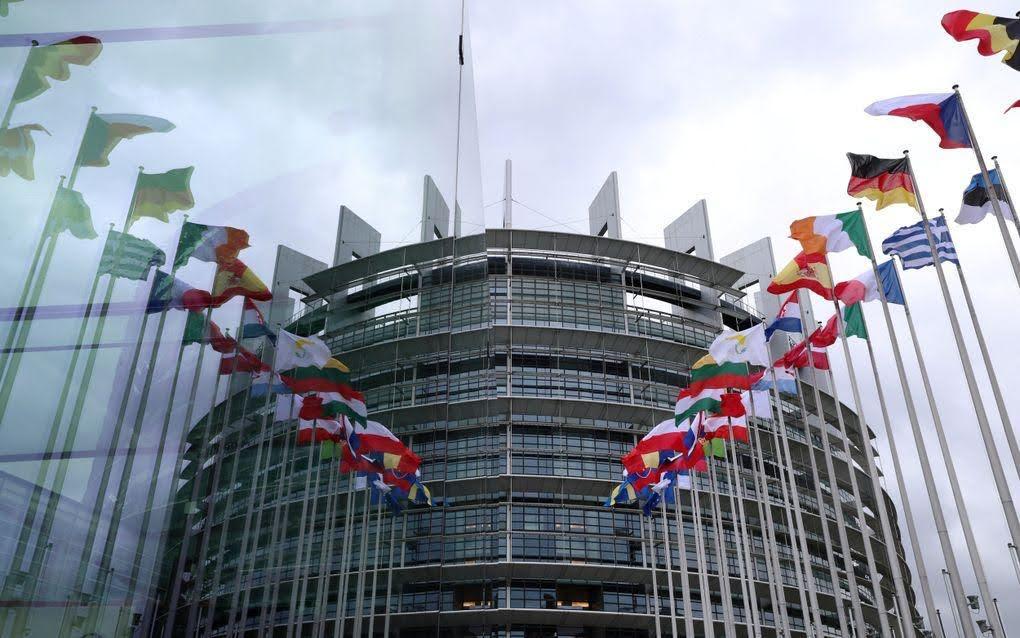
'Part of the European Parliament would prefer to guarantee access to abortion everywhere.’ Photo: the Strasbourg building that houses the European Parliament. image AFP, Frederick Florin
By Henk Jan van Schothorst and Wilmer Hak
Published in the Reformatorisch Dagblad of November 23, 2024
France enshrined the right to abortion in its constitution, the UK introduced safe-access zones and part of the European Parliament would prefer to guarantee access to abortion everywhere.
The right to life is an internationally agreed-upon human right, but abortion is not. When abortion is nevertheless recognized as a right at the national level, a person can derive rights from it. Then, these rights can then also limit other people's rights.
Safe-access zones around abortion clinics are an example of this. Establishing an area where vigils or demonstrations against abortion are prohibited attempts to ensure unhindered access to abortion, even though this may curtail the freedoms of others.
Prison sentence
While such safe-access zones are still determined at the municipal level in the Netherlands, it is increasingly done at the national level abroad. The protest ban then applies to all abortion clinics, with the participation of lower-level authorities such as municipalities having little or no weight around this ban.
Australia was a forerunner. Since 2021, all Australian states had safe-access zones. Canada, New Zealand, Ireland and the United States also had similar measures to prevent influencing around abortion clinics for some time, although the measures vary greatly by state or region.
The consequences of influencing people around an abortion clinic also vary greatly from country to country. Whereas within Dutch municipalities one can be arrested or in the worst case get an area ban, in Canada fines run up to $1,000. In Australia, one can even face a six-month prison sentence.
Privacy
However, increasingly harsh penalties are not the main danger behind the introduction of safe-access zones. As more countries, including the Netherlands, consider national legislation around safe-access zones, those that have already introduced them are being taken as an example. In these countries however, safe-access zones are justified as protecting the privacy and safety of women considering abortion. Any demonstration or vigil at abortion clinics affects these rights, they reason, and is therefore prohibited.
Understandably, openly insulting, scolding or threatening people falls under this behavior. Hence, according to the European Court of Human Rights, such behavior may be curtailed in far-reaching cases.
However, what is also criminalized in some countries in these safe-access zones is handing out flyers or merely talking about abortion. In Australia, courts even went so far as to consider silent prayer within those zones as punishable, intimidating, and threatening behavior.
This is also reflected in UK legislation around safe-access zones. Silent prayer and holding a Bible are even labeled as a possible form of fearmongering here.
Freedoms
So, what about fundamental freedoms, such as those of religion, demonstration and assembly? While these fundamental rights are indeed guaranteed in international conventions and in the constitutions of the relevant countries, they can be restricted under the proportionality test. This test determines whether the infringement of a fundamental right is necessary and appropriate. If it is, then the infringement is permissible.
Many courts in Western countries have held in recent years that safe-access zones meet this test. The psychological and emotional impact of vigilantes on people seeking to use abortion would be too great, although research cannot prove this claim.
The impact however of forced abortion on women can be proven from research. For these women, vigilance at an abortion clinic in particular may provide a counterbalance and support. It may protect them from emotional damage after an abortion or prevent an abortion. Hence, there has always been a significant group of women who say they are grateful with the help of vigilantes for informing them about the alternatives. Safe-access zones undermine this help and therefore the rights of this group to access information about other options.
Future
Far-reaching restrictions on religious freedom and other freedoms, such as safe-access zones, are increasingly hailed internationally as the new normal. For the consequences of this, we must prepare ourselves as Christians.
For many years, Christian Council International therefore endeavored to combat these trends and uphold the principles of God's Word alongside international law. This can be done, for example, by engaging with countries and their representatives at the United Nations Human Rights Council when they are measured against the periodic yardstick for human rights compliance.
Of course, hate speech and intimidation should always be rejected. However, the move to include respectful vigils or silent prayers cannot and should not be made. The world needs to understand the value of prayer and life, then it will begin to see vigils from a very different perspective!
Henk Jan van Schothorst is director, Wilmer Hak policy officer Geneva of Christian Council International.